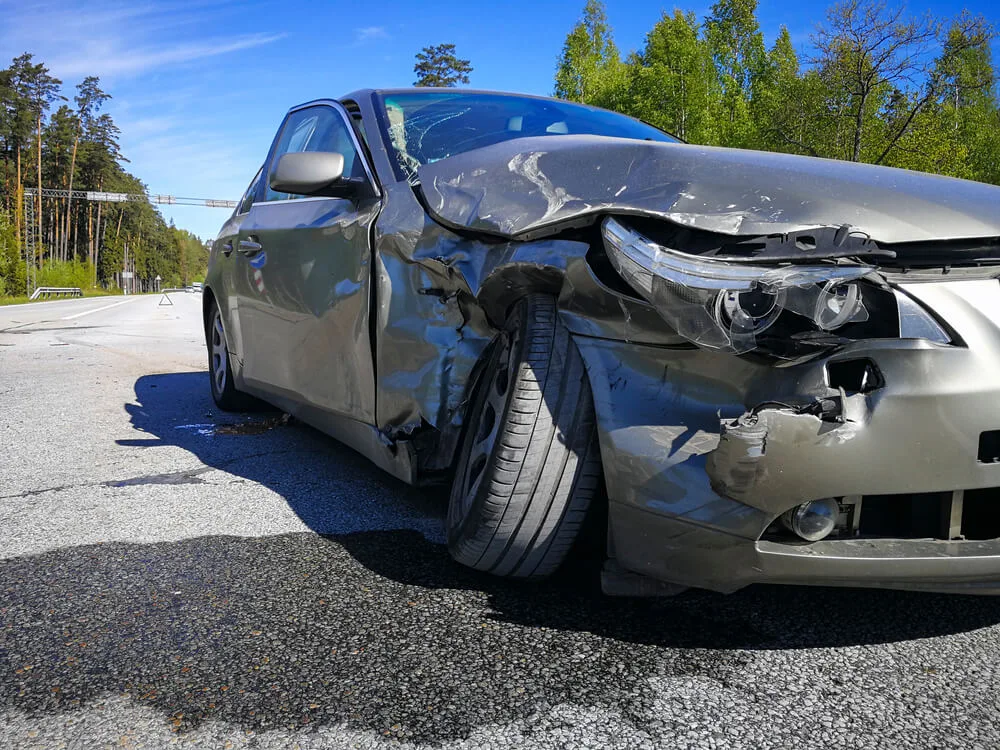If your car was just declared “totaled,” chances are the insurance company’s first offer felt like an insult. It’s not personal, but just a business. Insurers are trained to protect their bottom line, not your replacement cost. They’ll calculate what they think your car was worth right before the crash, subtract your deductible, and then try to sell what’s left for parts to recover their money.
That leaves many drivers wondering: “How am I supposed to buy another car with that?”
You’re not alone. Most people don’t realize you can, and should, negotiate your total loss payout. To get the most money from your insurance for a totaled car, you need to research your car’s value independently, document its pre-accident condition, and present evidence that supports a higher settlement. Below, we break down each step, plus your rights under Florida, Texas, and Tennessee law.
Understanding When a Car Is Considered “Totaled”
A car is considered a total loss when the cost of repairs exceeds its Actual Cash Value (ACV), essentially what it was worth before the crash. But each state sets its own “total loss threshold,” the percentage at which repair costs trigger a total loss classification.
- Florida: 80% of the vehicle’s value (Fla. Stat. § 319.30(3)(a))
- Texas: 100% (the total loss formula — if repairs + salvage value ≥ ACV)
- Tennessee: around 75% (varies slightly by insurer)
So, if your $10,000 car needs $8,000 in repairs, Florida law lets insurers declare it totaled even though repair costs are less than full market value.
Insurers calculate the total loss ratio, which is the cost of repairs divided by the actual cash value. The insurer then compares the result to an industry-set standard of 70-80%. These calculations are also known as total loss triggers, which means that the insurer is beginning to view your vehicle as a potential total loss.
If the cost of repairs is less than 100% of the actual cash value but greater than 70% of the vehicle’s actual cash value, then salvage value plays a part in determining whether the vehicle requires repairs. Salvage value is the estimated amount an asset is worth at the end of its useful life.
When evaluating total loss, insurers also consider:
- Vehicle safety and repair quality
- Pre-accident condition (mileage, wear, upgrades)
- Regional market trends (car shortages, resale demand)nt
Always ask your insurer for their “valuation report.” It lists every comparable vehicle they used to determine your car’s worth, and you have the right to challenge it.
Who Gets Paid After a Total Loss?
Who receives the payout depends on how you owned the car:
- Owned outright: The check goes directly to you.
- Financed: The lender is paid first to cover the remaining loan balance, and you receive any leftover funds.
- Leased: The insurance company pays the leasing company directly.
If you owe more than the car’s value, GAP insurance (Guaranteed Asset Protection) can cover the difference. Without it, you might still owe money on a car you can’t drive — one of the most frustrating surprises for accident victims.
Who’s Responsible for Paying?
The responsible insurance company depends on fault and coverage type:
- If another driver caused the crash, their insurer should pay your vehicle’s actual cash value.
- If you were at fault, your collision coverage applies.
- If the other driver is uninsured or underinsured, your UM/UIM coverage or collision coverage can help cover the loss.
In no-fault states like Florida, your insurer may handle the claim first, even if the other driver caused the accident. But remember, that doesn’t mean you’re stuck with a low offer. You still have every right to negotiate the settlement.
How to Find Out What Your Car Is Really Worth
Before signing anything, conduct your own research. Insurance valuations often miss upgrades, new tires, or low mileage that increase value. Use trusted resources such as:
- National Automobile Dealers Association guides
- Kelley Blue Book
- Consumer Reports Car Value Estimator
- Edmunds Car Appraisal Tool
Check listings in your ZIP code for vehicles with similar make, model, mileage, and trim level. Save screenshots or printed pages to use them as evidence during negotiation.
Providing Proof and Documentation
Despite your efforts to independently value your vehicle, the insurance company may refuse to make a better offer. Back up your claim with detailed documentation. Include:
- Maintenance records and recent repair receipts
- Accident report and photos
- Original purchase sticker or window sticker showing options
- Emails or letters exchanged with the insurer
If you recently added upgrades like new rims, stereo systems, or tires, include receipts. Small details can raise your valuation by hundreds.
Effective Negotiation Strategies
Negotiations with insurance companies can be complex, time-consuming, and frustrating, but there are steps you can take to streamline the process.
Here are a few tips when negotiating with your insurance for the best offer:
- Understand your auto insurance policy: Read through your policy to understand coverage limits, exclusions, and all relevant details. Most importantly, make sure you know how much you’re entitled to in case of a total loss.
- Ask for the valuation report: Review every comparable car used. If any are lower-trim or higher-mileage, point that out.
- Provide documents: Print copies of all interactions with your insurer, including emails, letters, and phone call logs. Write down details of your discussions and any promises made by the insurer.
- Be patient and persistent: Negotiations won’t be completed within a day or a week. It may take several phone calls and meetings to agree, so stay persistent in your efforts to get a proper offer.
- Stay calm and polite: Staying calm, respectful, and polite is an effective communication strategy. Avoid losing your temper, which can delay negotiations and damage your case.
- State your intentions: Clearly state your preferred settlement amount, and provide reasoning and evidence to back it up. Bring copies of the latest valuation report, an independent appraisal report, the policy document, and receipts of aftermarket accessories.
- Speak with a manager: If you’re not progressing with the insurance company’s representative, request to speak with the line manager. They often have more authority to make decisions.
If negotiations ultimately fail, request an appraisal from a neutral third party on the vehicle’s market value. To avoid the expenses and added time associated with a third-party appraisal, the insurance company may improve its offer.
Third-Party Appraisal and the “Appraisal Clause”
If talks stall, you can request an independent appraisal under the “Appraisal Clause” in most policies. This means a neutral third party evaluates your car’s value and compares it to the insurer’s offer. You hire one appraiser. The insurer hires another. If they disagree, a third “umpire” appraiser breaks the tie.
This process can prove your car was undervalued, and often pressures the insurer to increase the offer before reaching that stage.
Making a Counteroffer
Compare the offer given to you by the insurance to the ones found during your research and given by the third-party appraisal. If they’re similar, you’ve probably been offered a reasonable price.
But if you feel like you are still being lowballed, and your data supports it, decide on an appropriate counter to present to your insurance carrier. Email your provider with all of the documents and information you have compiled to establish the credibility of your offer.
Knowing Your Rights and Next Steps
If you believe you are not getting a reasonable offer after negotiation and making a counteroffer, contact your agent for guidance. In some states, the Office of Consumer Affairs can provide advice.
File a bad faith complaint if the insurer is unreasonably delaying or undervaluing your claim. Or call a personal injury attorney experienced in property damage and insurance negotiations.
Maximize Your Insurance Payout for a Totaled Car
If you feel that your totaled car has been undervalued by your insurance company after an accident, it’s important to speak up as soon as possible to get the most money possible. Ask for a copy of the report your insurer put together, including all the information they used to determine your car’s value. Negotiating with your insurer for a proper settlement can often get you an additional $1,000 or more.
If you’ve been involved in a car accident that wasn’t your fault, working with an injury attorney helps your chances of getting the fair and just compensation you deserve. At Steinger, Greene & Feiner, our expert car accident lawyers have been securing maximum payouts for car accident victims for decades.
If you prefer face-to-face, we’ve got offices throughout Florida, Texas, and Tennessee. In Florida, we serve clients with offices conveniently located in West Palm Beach, Miami, Fort Lauderdale, Tampa, Fort Myers, Orlando, Port St. Lucie, and many more cities throughout the state. Even if you don’t think you have a case, we encourage you to contact us for a free, no-obligation consultation. We operate on a contingency fee basis, meaning that you don’t pay a dime until we win your case.




